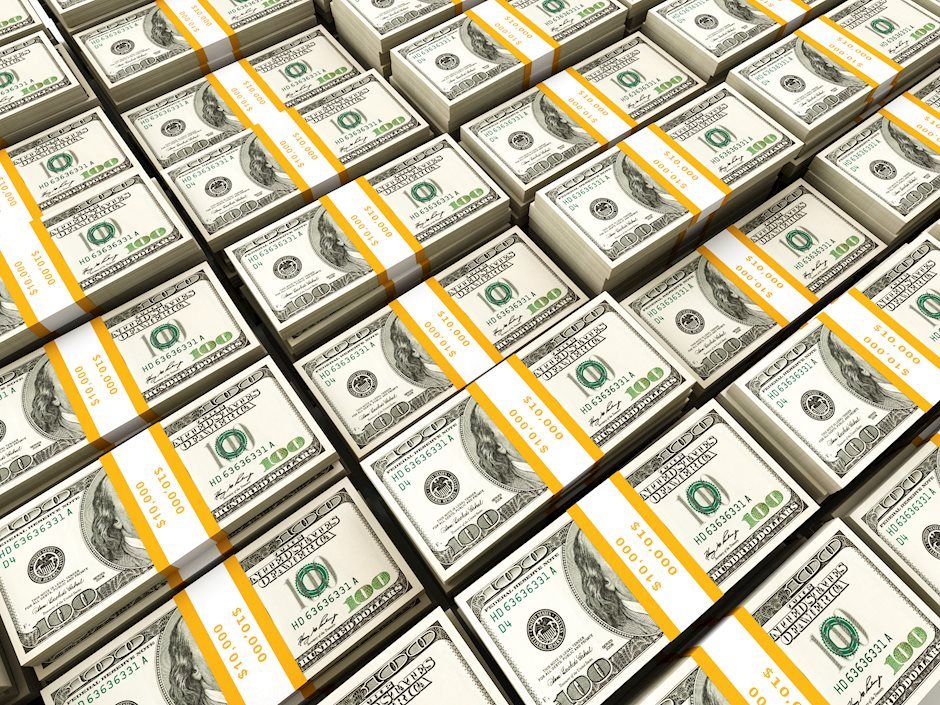Elizabeth Warren in Bed With Trump: Both Want to Sink the Dollar

Elizabeth Warren and Donald Trump are wrong together on at least one thing: Both want the dollar to collapse.
Active Management
Warren proposes "actively managing our currency value” to promote exports.
The left-wing Economic Policy Institute embraced the idea in this NYT Op-Ed: Warren’s Radical Plan to Fix the Dollar.
Ms. Warren and Donald Trump agree on at least one thing: America’s currency problems are hurting workers.
Overseas currency manipulation by central governments made American exports more expensive all over the world. And it made products manufactured in China and other countries cheaper in comparison. It’s the primary reason America’s trade deficit soared over the last 20 years, wiping out almost five million manufacturing jobs, roughly 90,000 factories and the livelihood of thousands of the nation’s farmers.
Revaluing the dollar could create two million to five million good-paying jobs, according to research by my organization, the Economic Policy Institute. And that could set off a much-needed economic revival.
What is standing in the way of such a change? Over the past decade, currency manipulation has become a bipartisan concern. In a 2008 campaign appearance, Barack Obama announced that, if China kept “manipulating” its currency, the United States would “start shutting off” market access. Similarly, Donald Trump promised in 2015 to declare Beijing a currency manipulator on Day 1 of his presidency. Neither one followed through, however, and meaningful action stalled in Washington.
Several economists have estimated that the dollar must fall by roughly 27 percent in order to rebalance trade flows in three to five years.
Revaluation Options
EPI senior economic Robert E. Scott discusses options to implement Warren's radical "active management" idea.
- Federal intervention to buy foreign currency assets
- Impose a withholding tax on the profits and dividends earned by foreign investors, both public and private.
- Citing Nixon in 1971, the executive branch could negotiate directly with its trading partners to realign the dollar against competing currencies, a precedent set by previous Republican administrations.
- President Richard Nixon imposed a 10 percent import surcharge that coerced allies into raising the value of their currencies.
- Tariff threats
Scott concludes " Whatever the approach — whether it’s Ms. Warren’s plan, or negotiation compelled by broader tariff threats — an overvalued dollar is now the primary drag on America’s global competitiveness. This currency problem has been ignored for too long, and it’s a growing problem for America’s workers and domestic industries. Wall Street’s self-interest should not be allowed to stand in the way of finally fixing it."
Merger of Trump and Warren
Thus folks, we have the merger of currency ideas of of Elizabeth Warren and Donald Trump.
The result of a forced 27% decline in the dollar would be import prices rising as much as 27%. The average person on fixed income would not exactly be pleased with the benefits.
Benefits - None
What benefits are we discussing? None.
In contrast to the potty notion that these radical moves would create 5 million jobs, I am wondering how many jobs would be lost.
The disruption in supply chains alone is guaranteed to kill millions of jobs but the numbers are hard to quantify. It is clear that broader tariff threats have had a negative benefit.
Manufacturing jobs will not come back. They are lost and gone forever thanks to productivity improvements. It takes fewer and fewer workers each year to produce anything and everything from cars to shoes to underwear.
To gain a thousand or so (use your own number) underwear manufacturing jobs, 327 million Americans would have to pay 30% more.
Given that more spent on underwear means less spent on something else, how does this make sense?
Docking and Truck Jobs
Imports come via ships to the coast. The items have to be unloaded then delivered to their final destination by trunk or rail.
How many handling jobs do we lose if the manufacturing returns?
Of course, the number of truck jobs will soon dwindle, but that is a sign of progress, not something to moan about.
Intervention
Warren, Trump, and the EPI are all screaming for intervention to counteract China's currency pegs.
Yes, China has currency pegs, but the US, EU, and Japan manipulate currencies indirectly via interest rate and QE policies.
Citing China for manipulation is another one of these pot calling the kettle black situations.
Bubbles
Rate cuts weaken currencies.
Unwarranted rate cuts create bubbles. We are in a huge bubble now. That fact has not occurred to Trump, Warren, or the EPI.
Dollar Overvalued?
It is questionable to claim the dollar is overvalued.
European and Chinese banks are in miserable shape.The Eurozone might break up, starting with Italy. What would the Euro be worth should such an event take place?
China regularly needs intervention, not to lower the yuan as the article claims, but to prop it up, to stop capital flight.
If China floated the yuan, it very well could crash.
Standards of Living
If China is "dumping" goods below cost, it is to the advantage of the US not China.
Standards of living increase when the cost of goods declines.
That is the final bottom line in this mess.
It is always a benefit for the consumer to get more for their money than less.
Sadly, Warren, Trump, and the EPI all want the same fool thing: Higher inflation and a weaker, less for your money, dollar.
Author

Mike “Mish” Shedlock's
Sitka Pacific Capital Management,Llc

















